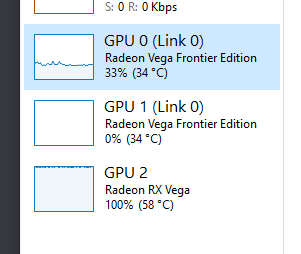Hardware Samplers: A Closer Look into the Technical Behind-the-Scenes
Hardware samplers are devices that capture and store sound samples, which can then be used in music production, sound effects, and other audio-related applications. These devices have become integral to modern music production, offering high-quality samples and convenient features for editing and manipulating sound. Behind the scenes, hardware samplers are complex pieces of machinery that require a deep understanding of technology to operate effectively. From the design of the circuitry to the programming of the software, hardware samplers involve multiple technical aspects that are essential to their operation. For example, the circuitry design ensures that the sound quality is optimized, while the software programming allows for precise control over the sampling process. Understanding these technical aspects can help musicians and sound engineers get the most out of their hardware samplers, creating music that is rich in sound and expression.
In the world of music production, hardware samplers have always played a significant role. These devices, which are often regarded as the backbone of many studios and live performances, allow musicians to record, edit, and playback sounds with precision and accuracy. But what exactly are hardware samplers? And how do they work? Let’s take a closer look into the technical behind-the-scenes of these incredible devices.

Hardware samplers are essentially digital audio recording devices that are designed to capture, store, and playback sound waves. They are typically connected to a computer or other audio source via USB or MIDI cables, and come equipped with a variety of features that enable musicians to record, edit, and manipulate sound in a variety of ways. For example, many hardware samplers include pitch and time stretching capabilities, which allow musicians to change the pitch or speed of a sound without affecting its overall quality. Additionally, they may also include effects processing capabilities, such as reverb, delay, and compression, which can be used to enhance the sound quality of recorded samples.
One of the most important aspects of hardware samplers is their ability to capture high-quality sound. This is achieved through the use of digital audio interfaces, which convert analog signals from microphones, instruments, or other sources into digital data that can be processed by the sampler. The digital audio interfaces found in most hardware samplers are designed to provide high-resolution sound quality with minimal distortion or noise interference. This ensures that the recorded sound remains true to the original performance, and that any subsequent editing or processing does not degrade the sound quality.
Once a sound has been captured by the hardware sampler, it can be stored in its internal memory or on an external storage device such as a USB flash drive or SD card. This allows musicians to archive their recordings for future use or to share them with others. Additionally, many hardware samplers also include audio processing capabilities that enable musicians to apply effects such as compression or reverb to their recordings before storing them. This can help to enhance the overall sound quality of the recording and make it more suitable for use in live performances or studio sessions.

Another important aspect of hardware samplers is their integration with software-based music production tools. Many modern hardware samplers come equipped with software development kits (SDKs) that enable them to communicate seamlessly with popular music production software platforms such as Ableton Live, Logic Pro X, or FL Studio. This integration allows musicians to use their hardware sampler as a plugin within these software environments, providing them with a powerful tool for creating, editing, and mastering music tracks.
In conclusion, hardware samplers are crucial devices in the world of music production. They provide musicians with the ability to record, edit, and playback sounds with precision and accuracy, and to integrate these sounds with other music production tools seamlessly. By understanding the technical behind-the-scenes of these devices, musicians can better utilize them to create memorable music that resonates with their intended audience.
Articles related to the knowledge points of this article:
Rolison Hardware: A Legacy of Quality and Innovation
Engels Hardware: A Legacy of Quality and Innovation
Menards Hardware: The Complete Guide to this Building Supply Giant
Title: The Art and Science of Front Door Hardware in New Zealand
DORMA Hardware: The Key to Quality and Performance in Construction



